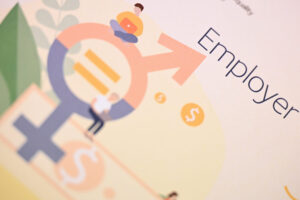Share
Australians tend to bring a fair bit of swagger to international comparisons of economic performance. After all, Australia has experienced twenty-eight consecutive years of economic growth without a recession—a record for industrial countries. We are the ‘lucky country’, with one of the highest material living standards in the world, a wealth of natural resources, and a ‘no worries’ ability to withstand global economic shocks.
The Australian policy journal Arena has published a wide-ranging article by Centre for Future Work Director Jim Stanford on the labour market issues at play in the current federal election.
Stanford argues that the sense of “superiority” which typically accompanies economic debates during Australian election campaigns is muted in the current contest, because of the poor performance of the labour market in recent years. Unemployment and especially underemployment remain high; the quality of work has deteriorated; and wages have experienced their weakest performance since the end of the Second World War.
Visit Arena’s website to read the full article.
Between the Lines Newsletter
The biggest stories and the best analysis from the team at the Australia Institute, delivered to your inbox every fortnight.
You might also like
Analysis: Will 2025 be a good or bad year for women workers in Australia?
In 2024 we saw some welcome developments for working women, led by government reforms. Benefits from these changes will continue in 2025. However, this year, technological, social and political changes may challenge working women’s economic security and threaten progress towards gender equality at work Here’s our list of five areas we think will impact on
The continuing irrelevance of minimum wages to future inflation
Minimum and award wages should grow by 5 to 9 per cent this year
Centre For Future Work to evolve into standalone entity
The Centre for Future Work was established by the Australia Institute in 2016 to conduct and publish progressive economic research on work, employment, and labour markets. Supported by the Australian Union movement, the centre produced cutting edge research and led the national conversation on economic issues facing working people: including the future of jobs, wages


